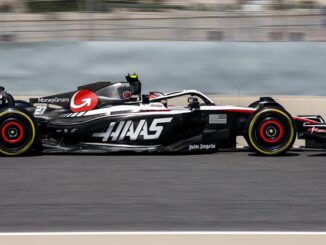How would the Red Bull Formula 1 team look without Christian Horner? How would Max Verstappen’s departure from the squad to drive for a competitor affect things? Which player, Verstappen or Horner, is more significant to Red Bull, if forced to choose?
To start with the last query, it depends on how long or short term we are discussing. Even without Horner, Verstappen would very likely continue to lead the team in races for the next year or two. However, following that?
The organisation that supplies those vehicles and the racing squad that operates them is not as successful as it was by happenstance. Important decisions about hiring and investing, as well as strong guidance and leadership, are required to properly utilise the financial fuel that keeps it at the forefront.
No matter how well-funded, a rudderless organisation would eventually lose the motivation required to produce the cars that even a driver with Verstappen’s calibre of skill needs to achieve.
If Horner were to depart Red Bull, it would be difficult to find a replacement because he has developed naturally alongside the team as it has evolved from the tiny organisation that took over the Milton Keynes location of Jaguar Racing and the former Stewart Grand Prix in the middle of the 2000s. The team’s structure has been woven with his vision as it has grown rapidly.
F1 driver Christian Horner, Red Bull
Now a multi-million-pound monster of its own industrial estate, the Milton Keynes location houses the sister RB team’s technological base in addition to the gigantic Red Bull Powertrains engine manufacturing complex.
Running a few hundred workers and overseeing operations from the pitwall on race weekend is no longer Horner’s responsibility. He is in charge of several thousand workers and hundreds of millions of pounds’ worth of assets.
He’s skillfully transitioned from being the team leader to a very successful executive. Even as his involvement on the team grew, he managed to hold onto the tone that his personality brought to the space.
It’s just not possible to unstitch all of that and replace him like-for-like.
Red Bull Racing is still a highly focused, agile race team that is fairly straightforward in its organisational structure. It is also quick to adjust to changing conditions. There hasn’t been any corporate rigidity, which can hinder teams this size.
Adrian Newey has found Red Bull to be an appealing place to work for a considerable amount of time since Horner was given the flexibility to build and govern the company in this manner by the late Dietrich Mateschitz, a co-owner of the company.
The team’s ability to maintain this potent blend of straightforward but well-funded resources was always going to be a concern, though, given the death of the Austrian billionaire in late 2022.
Corporations and racing teams follow different sets of rules and regulations. One of the reasons Red Bull has been so successful is that it is not subject to the same corporate controls as, say, Ferrari.
Mercedes’s greatest achievement came from owning a third of the team bearing its name but letting a racing professional manage it.
Although Horner’s entire post would be outside of his area of expertise and a significant ask, current Red Bull sporting director Jonathan Wheatley (shown above) would be a safe pair of hands on the racing side.
Someone from that world would have to take over the operation’s business side.
Red Bull GmBH, the parent firm based in Austria, would probably take the initiative to find someone to take on that role.
The racing arm’s level of independence from the corporation would probably be lower than it was during the Mateschitz-Horner era, which raises serious concerns about the arm’s long-term viability.
All of this affects the calibre of individuals who will be drawn to a team in the long run, as well as possibly the future of those who are already there. Given the magnitude of the disruption, it is plausible that the core technical team may be lured to other opportunities.
Competitors wishing to capitalise on the situation in the event that Horner leaves will be very interested in the potential there.
not only the technical group, but perhaps even Verstappen as well.
Despite having a contract there through the end of 2028, there are whispers that he could replace Lewis Hamilton at Mercedes as early as next year. Whoever is pushing for Horner’s dismissal may be using this as a tactic to pressure someone at Red Bull GmBH to act or risk losing Verstappen. But odd things do happen in Formula One.
In reality, Red Bull and Verstappen’s marriage has never been as close as people might think. Not as close as Hamilton-Mercedes or Schumacher-Ferrari, where the boundaries between the team’s and the driver’s interests were never clearly defined.
Jos Verstappen exploited Mercedes and Red Bull’s interest as leverage in negotiations from the beginning. Red Bull was lucky to have acquired Max’s talents, but he could have jumped ship during Mercedes’ years of supremacy.
In this instance, the driver’s power dynamic has always been abnormally skewed towards the team.
It would be devastating for Red Bull Racing to lose both Verstappen and Horner.
But what would a Red Bull that was led by Horner but lacked Verstappen look like? It would undoubtedly continue to be formidable if the key technical personnel were retained. But it would be tough to replace Verstappen like for like.
It becomes clear now that Red Bull Racing as it once existed—with Verstappen and the Horner-led squad collaborating to destroy the competition—is no more.
It is reasonable to anticipate that it will dominate for a while, but in the long run, it’s hard to see this as anything other than the beginning of the end for F1.



Be the first to comment